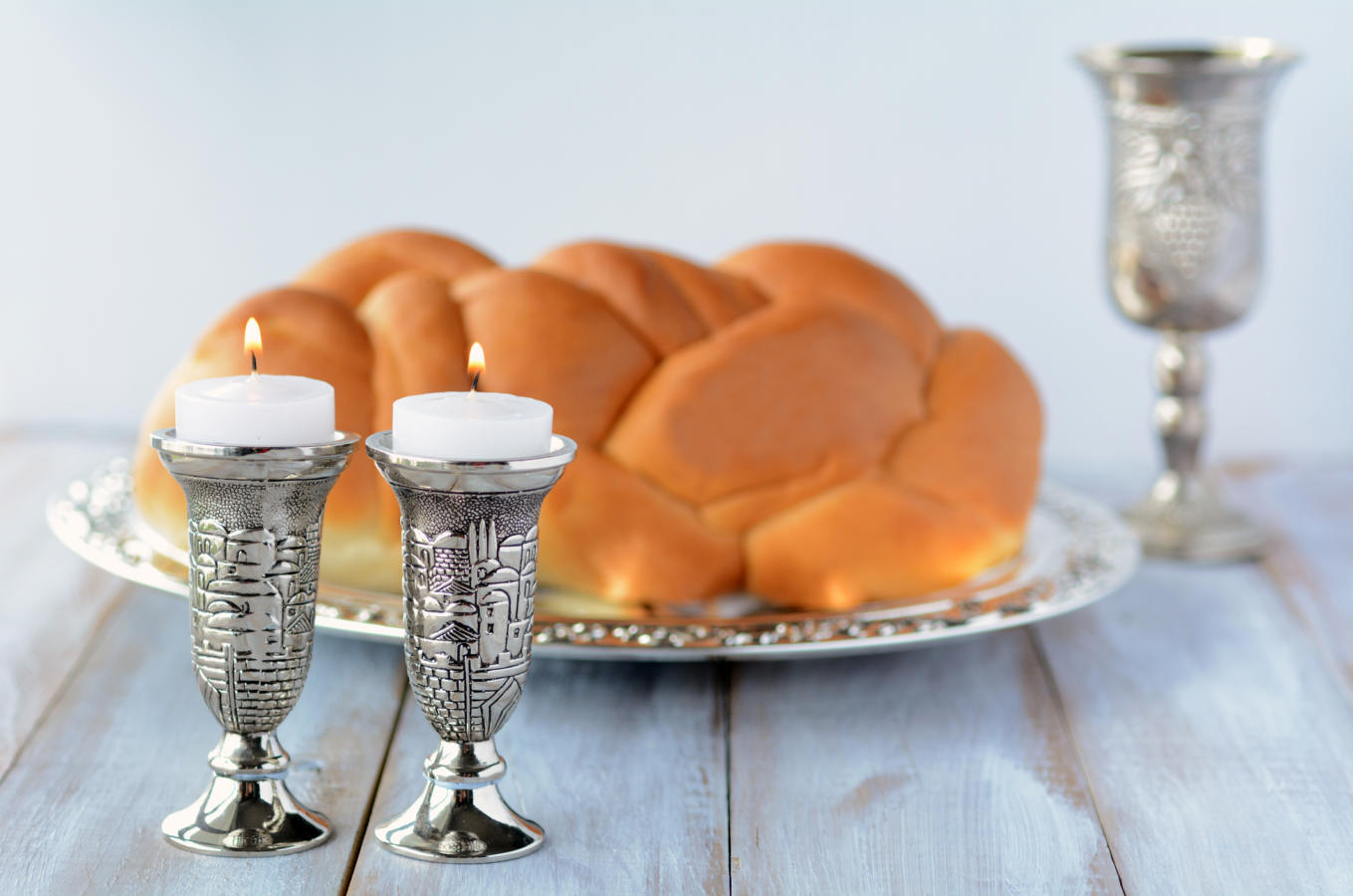Question: I’m young and live with my family, but they do not participate in . How do I observe Shabbat by myself when it comes to the things that families often do together, such as dinner, blessings, etc.?
–Kelly, Texas
Answer: You are a brave soul, Kelly. Taking on Shabbat by yourself is a tough job, but there are definitely ways to make it work even if your family isn’t on board.
Your first and possibly best option is not one you’ll be able to take every week, but it should still be on your radar: spend Shabbat with a Shabbat-observant family. This is easier to do than you probably imagine. Contact your local synagogue and ask if they might be able to match you up with a family who will host you for Friday night dinner, or even the whole 25 hour period. If you show up at synagogue often enough you might be invited without having to ask, but don’t feel bad putting in a request to the community.

Help us keep Jewish knowledge accessible to millions of people around the world.
Your donation to My Jewish Learning fuels endless journeys of Jewish discovery. With your help, My Jewish Learning can continue to provide nonstop opportunities for learning, connection and growth.
You probably can’t do this every week, but doing it once in a while will be invigorating and fun. There really isn’t anything that compares to spending Shabbat with a family.
On weeks when you can’t or don’t want to skip out on your own family, there are some ways that you can create a Shabbat atmosphere, regardless of the rest of your family’s involvement. All of the blessings that go along with Shabbat, from lighting the candles, to saying Kiddush, Hamotzi, and Birkat Hamazon, can be done on your own. You don’t need to do them as a family, so I suggest just going ahead and doing them yourself, regardless of who’s around. That time is really a great opportunity to go beyond just saying the prayers. You can do some meditating, or take a few minutes for personal reflection. Rabbi Abraham Joshua Heschel famously said, “The meaning of the Sabbath is to celebrate time rather than space. Six days a week we live under the tyranny of things of space; on the Sabbath we try to become attuned to holiness in time.” So don’t spend too much time worrying about whether everyone in your family’s house is observing Shabbat the way you want. Instead, try focusing on the meaning of Shabbat–to the Jewish people in general, and to you, specifically.
Certainly Shabbat is always nicer when you can share it with others, so you might want to consider working out a way for your family to join you for some but not all of the observance. Your parents and siblings might not be into making sure they have dinner ready by, say, 4:34 exactly on a Friday afternoon, but if you spend Thursday night in the kitchen making sure there will be a delicious meal the following afternoon, you can bet your family will be thrilled to have hot and yummy food waiting for them when they get home.
When Shabbat starts early, like it does in the winter, you have plenty of time after candle lighting to do the blessings yourself. Your family can just join you for the meal. That way, you’re having a Shabbat meal with your family, without forcing them to sit through rituals they aren’t interested in.
Another option is to cultivate a community that you can bring into your home. Maybe your family isn’t interested in celebrating Shabbat, but you can probably find a few friends–from your synagogue, or from school–who would like to come over to observe Shabbat with you. Your family might be off at a football game, but you can still make and serve dinner for a friend or two, and say the blessings with them.
We like to say that Shabbat is about being with your family, but really, you can do Shabbat anywhere, and you can make anyone your Shabbat family.
Shabbat Shalom!



